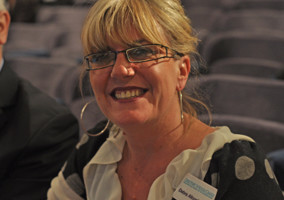A Birmingham domestic abuse charity has said it is at risk of cutting services or closing as it faces financial challenges and a staff shortage.
Roshni, which specialises in helping Black and minoritised communities affected by domestic abuse including forced marriage and honour-based abuse, has a major source of funding from the National Lottery Community Fund due for renewal in the coming months.
Surwat Sohail, the charity’s chief executive, told Civil Society: “We don't know what the future holds for us beyond May.
“We could lose our funding. There is no sense of security at the moment because we are concerned about our viability.”
The charity recorded an income of £773,000 in the year to March 2024, most of which came from charitable funders, against costs of £545,000.
National funding challenges
Sohail said more domestic abuse charities are applying for funding from trusts and foundations as local authorities’ funding fell short.
According to Women’s Aid’s 2025 annual report, government investment fell £321m short of the £516m needed to properly fund local specialist women’s domestic abuse services in the financial year 2023-24.
This creates a challenging environment for Roshni, which receives most of its funding from lotteries and foundations, as it competes with more applicants for the same amount of money, Sohail said.
“For smaller providers that are getting small grants, that's a big challenge,” she said. “You don't know where you're going to be the year after.”
No donations
The charity has not been receiving any public donations because of the cost-of-living crisis, Sohail said, and previous fundraising income has all been used.
She said the charity now needs long-term funding as grants it received to combat the cost-of-living crisis are now gone.
“You barely get the project off the ground in 12 months and then the funding is finished,” she said.
Staff turnover
Short-term funding has also caused Roshni to have a high staff turnover rate, she said, because employees tend to look for other jobs while it waits for funding in between projects.
The charity is run by 13 staff and five freelance councilors with no volunteers, she said, so a loss of any employee has a “massive impact” on the services it can provide.
Roshni supports between 850 and 1000 women from Black and minoritised communities, which is a service area that is already experiencing a shortage, she said.
“You can give them as many assurances as you want, but job security is a big issue, especially with the cost-of-living crisis,” she said. “So, if people feel that they can get secure jobs elsewhere, they will go.”
Related articles












